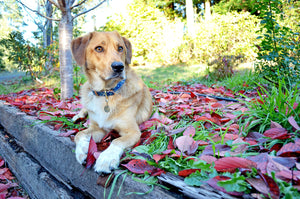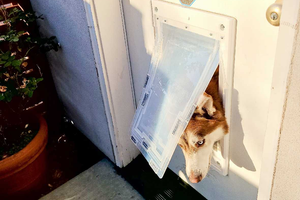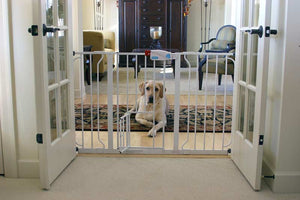Is Your Puppy Sleeping Too Much or Too Little? Here's What to Know

As any new puppy owner will tell you, these little balls of energy have a seemingly endless supply of enthusiasm for playtime and exploration. But all that energy is only possible because puppies also spend a lot of time sleeping. In fact, puppies need even more sleep than adult dogs. Up to 18-20 hours a day, to be exact.
But why is sleep so important for these little furry bundles of joy? Why is sleep essential for a puppy's health and well-being, and what can you do to help your new furry friend get the rest they need to thrive?
Why Do Puppies Sleep So Much?
Puppies are notorious for their love of sleep, and for good reason: they need a lot of it! In fact, depending on their age, puppies can sleep anywhere from 18-20 hours a day. This is because puppies need all that extra sleep to support their growth and development, both physically and mentally. During sleep, their bodies are hard at work repairing and building tissues, while their brains process all the new information they've learned throughout the day.
As puppies grow older, their sleep patterns change too. At around 12 weeks of age, puppies will start sleeping for longer stretches at night and consolidating their naps during the day. By the time they're six months old, they'll typically be sleeping through the night and taking fewer naps during the day.
What Factors Affect a Puppy's Sleep?
Puppies, like humans, have unique sleep needs that can vary depending on several factors. One such factor is breed and size. Generally, larger breeds tend to require more sleep than smaller ones. For example, Great Danes can sleep up to 20 hours a day as puppies, while a toy poodle may only need 15 hours of sleep per day. However, it's important to note that there can be variations even within the same breed or size category.
Another factor that can affect a puppy's sleep is their activity level. Highly active puppies may need more downtime to recharge, while less active puppies may require less sleep. It's important to note that over-exercising a puppy can also negatively impact their sleep - like humans, puppies need a balance of rest and activity to stay healthy.
One of the easiest ways to increase your puppy’s activity levels is to give them a pet door. Having the freedom to go outside to explore and run around will help them burn off all that excess energy and sleep better overall.
The sleeping environment is also crucial for quality rest. Puppies need a quiet, comfortable, and safe space to snooze. Consider investing in a cozy bed or crate that is the appropriate size for your puppy's breed and age. This can provide them with a sense of security and help them settle down for sleep. It's also important to block out excess noise or light, as these can be distracting and disruptive to your puppy's sleep.
Ensuring that the room is at a comfortable temperature is also key - puppies are more sensitive to temperature changes than adult dogs, so make sure the room isn't too hot or too cold.
By taking these factors into account, you can help your furry friend get the rest they need to grow and thrive.

Signs That A Puppy Is Sleeping Well
If your puppy is getting enough rest, there are a few behaviors that you may notice. One common sign is snoring - just like humans, puppies may snore lightly when they're in a deep sleep. You may also see your puppy twitching or moving their legs during sleep, which indicates they're in the rapid eye movement (REM) phase of sleep. Puppies may also dream during this phase, which can result in cute little yips or barks. Finally, if your puppy wakes up on their own feeling alert and refreshed, this is a good indication that they're getting quality sleep.
To ensure that your puppy is getting the best possible rest, it's important to provide them with a comfortable sleeping environment. A cozy bed or crate that is the appropriate size for your puppy's breed and age can help them feel safe and secure. Try to avoid allowing your puppy to sleep in your bed, as this can disrupt their sleep patterns and make it harder for them to fall asleep on their own.
Sticking to a consistent bedtime routine can also help your puppy get the sleep they need. Try to establish a regular bedtime and wake-up time, and stick to this schedule as much as possible. Puppies thrive on routine, and having a set sleep schedule can help them feel more calm and relaxed at bedtime.
By following these tips, you can help ensure that your puppy is getting the best possible sleep. A well-rested puppy is a happy and healthy puppy!
What To Do If A Puppy Isn't Sleeping Well
Just like humans, puppies can experience trouble sleeping from time to time. There are several common reasons why a puppy may have trouble sleeping, including anxiety, illness, or discomfort. If your puppy is having trouble sleeping, it's important to identify the underlying cause and address it appropriately.
One common cause of sleep disturbance in puppies is anxiety. Separation anxiety, noise phobias, and general anxiety can all make it difficult for a puppy to fall and stay asleep. To help your puppy manage anxiety, consider providing a cozy den or crate where they can retreat when they feel overwhelmed.
You may also want to try playing calming music or using a pheromone spray to create a calming atmosphere. For severe anxiety, consult with your veterinarian about the best options for managing your puppy's symptoms.
Another reason why a puppy may have trouble sleeping is illness. Puppies who are sick may experience pain, discomfort, or other symptoms that make it difficult for them to rest. If you suspect that your puppy is sick, it's important to seek veterinary care as soon as possible. Your veterinarian can diagnose and treat your puppy's illness, which can help them get back to their regular sleep patterns.

Finally, discomfort can also be a cause of sleep disturbance in puppies. Make sure that your puppy's sleeping environment is comfortable and that their bedding is supportive and appropriate for their size and breed. You may also want to consider using a comfortable and breathable harness that won't interfere with their breathing while they sleep.
Understanding and meeting a puppy's sleep needs is crucial for their health and well-being. By providing a comfortable sleeping environment, prioritizing exercise and playtime, and sticking to a consistent bedtime routine, you can help your puppy get the rest they need to thrive.
Additionally, being aware of common reasons for sleep disturbance, such as anxiety, illness, or discomfort, and addressing them appropriately can help your furry friend get back to their regular sleep patterns.
With these tips in mind, you can ensure that your puppy is getting the best possible sleep, leading to a happy and healthy life together.




